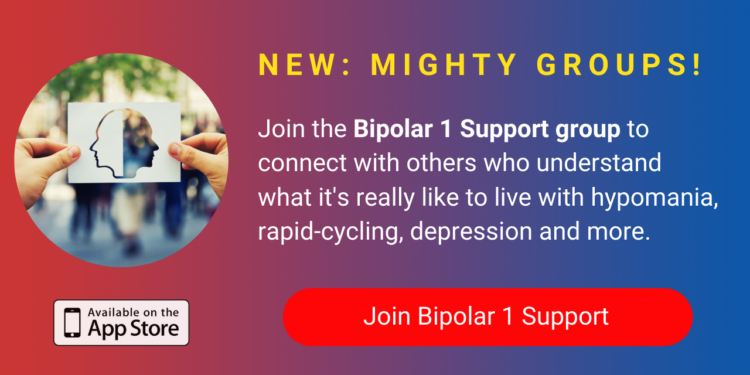I’ve just started my final year of college, and if you had asked me three years ago what I would be feeling right now, I probably would’ve said excitement and relief. But now that I’ve reached my senior year, I can’t help but look back on the past few years of my life, which have been indescribable, though not always in a good way.
Since graduating high school, I’ve accomplished so much: I’ve had internships that helped me grow, I have a job I love, I’ve learned more about science than I ever thought I would want, I’ve made some incredible friendships that I hope will last a lifetime and I’ve experienced (romantic) love for the first time. But just as with any life, it wasn’t always sunshine and roses.
In the past three years, I’ve been diagnosed with three mental illnesses, two movement disorders, been hospitalized three times and relapsed into dangerous and destructive coping mechanisms I thought I had left in my past. That is the best I can do to sum up the negatives in my life over my college career. But trust me, it isn’t as simple as that, and there’s more to that list. All in all, I think you can see the picture I’m painting here. Well, actually, maybe you can’t. Because I’m not painting a picture, it’s more like I’m flipping through a photo book.
The old cliche that people shouldn’t focus on the negative as much as we do is true, but it also isn’t in our nature to only focus on the positives in our lives (it isn’t really healthy to do that either). Since I only have about eight months left of undergrad left, I can’t help but imagine what life is going to look like after I graduate. (A note: I’m taking the current coronavirus (COVID-19) pandemic out of this, just talking about my own personal situation.) And when I do dream of what the future will look like for me, it’s more of a nightmare.
I have bipolar disorder, anxiety and ADHD, and I’ve had my fair share of setbacks with my mental illness treatments. Not just minor slips into more anxiety than usual or being a little more hyperactive, I’m talking big shifts and changes in the wrong direction. My biggest monster is my bipolar disorder, and it is a hell of a beast to fight. Big changes in my mood can make or break me every single day. And with rapid cycle bipolar disorder, it quite literally is a day-to-day struggle. Even though I’ve only had mental illness diagnoses and medications since starting college, I’ve dealt with debilitating anxiety and depression for half my life. So as I look forward to the future, it doesn’t feel great knowing those fights will continue.
I also have a movement disorder as a result of a medication I took for my bipolar disorder. Tardive dyskinesia (TD) causes me to have uncomfortable, uncontrollable eye movements, so it is clearly very visible. When it was initially diagnosed, I was told it would go away in a few months. That was almost two years ago. After the first year, doctors generally agree that it’s permanent. And while I’ve made peace with that, TD has made my life, well, complicated. I’ve had to cut off friends because of the way they treated me for it. I’ve had people ask me about it in front of large groups of people. And of course, people just making fun of me. Thinking of my future, I have to add my TD to the list of things I will carry with me.
While all of those things weigh very heavily on me, they are small in comparison to what really is giving me what a lot of people call the “quarter-life crisis”: what I’m going to do after college. That’s really what has been giving me ever-increasing levels of anxiety over the past five months. That’s really what has been keeping me up at night. I don’t know what I’m going to do with my life, let alone know how to juggle my other problems. But I’ll give you a little more detail of my situation.
My freshman year, I declared as an international relations major and wanted to go into international human rights law. After one semester, I realized that it wasn’t going to work. By then I had started my mental illness journey, so I decided I wanted to do something to help people who were going through what I was. I changed to a neuroscience major, which is the degree I will graduate with in the spring. At first, the plan was medical school to become a psychiatrist. But in my sophomore year, I decided to pursue graduate school to earn a PhD and conduct mental illness research. Ever since then, that’s been the goal. I’ve been preparing graduate school applications for months, almost a year now, and I should be really excited for this next part of my journey. But, here’s my issue: I don’t know if I want to pursue neuroscience as a career anymore. And to explain this, we’re going to jump back in time a little bit for more context.
When I was little, I wanted to be everything there was. A chef, a police officer, a dentist, a soldier, a medic, a pastor, a politician, a teacher, a historian, an author, etc. Every kid goes through phases like this, but not to the degree that I did. My siblings never experienced anything this extreme in terms of what they were excited about and wanted to do. A lot kids don’t even worry about that until they’re older, they just enjoy being a kid. So, what does any of this have to do with my current crisis?
When I was first diagnosed with bipolar disorder, I started by telling my new psychiatrist my whole story. At that point, I was 18, so basically anything I could remember up until middle and high school when I just focused on the highlights. She asked me more questions about my childhood than I expected, particularly about my frequent shift in interests. After the consultation, and the diagnosis, she told me that my childhood experience of constantly shifting passions was a sign of bipolar disorder. Not of the illness itself, but a precursor (a sort of warning shot). Alright, back to our current time.
I’ve said this to a few of my friends and family throughout college, because it was genuinely one of my biggest fears. When I switched from international relations to neuroscience, I felt good about it. But after some time passed, I started wondering if I had made too big of a decision too quickly, and what was actually happening was I was having a “passion swing” (as I like to call them) like I did as a kid. It soon became clear that my genuine interest in neuroscience wasn’t going away, so I figured I had found the right path.
But now, in the beginning of my senior year, I’m losing that passion. I’m losing the interest that initially brought me to neuroscience and has kept me in it this whole time. So what do I do now? Do I continue on a career path I don’t feel strongly about in the hopes that the passion “swings” back? Or do I pursue something totally different, essentially making all of my work for this degree pointless? Either way, I will still have the fear of another “passion swing” throwing everything off balance again.
Now you’re caught up. Here is my quarter-life crisis: I don’t know what I want to do with my life, but whatever it is, I have to deal with mental and physical challenges that heavily influence what it is I want to do. The thought of having to take pills every morning and night for the next 60 or so years, therapy every week for that same time and manage a career that is entirely unclear at the moment, it’s not just anxiety-inducing, it’s depressing. It’s depressing, and there really isn’t anything I can do to change it, which only makes it worse. I can’t “fix” my mental illnesses, my movement disorder, and I can’t force myself to be passionate about something.
In our present times, I imagine a lot of people are going through similar times of anxiety and uncertainty. The coronavirus (COVID-19) pandemic has turned the whole world upside down. In the United States (where I live), political turmoil and drama is only fanning the flames of instability in our political system, which influences our daily lives so heavily. Students of any age are feeling the pain of online learning, and those who graduated this past spring, or will graduate next spring with me, face an economy that has essentially shutdown, making job prospects slimmer than they have been in a generation. I wish I had the magic answer to all of it. Not the problems themselves necessarily, but how to deal with the emotions all of these things, along with personal circumstances, cause. I wish I had the magic spell to make all of those feelings of anxiety and fear go away. I wish I did, but I don’t. And I don’t think anyone does. So how to do we deal with it?
One step at a time. Day by day, we can’t control the entire world around us, but we can control how we interact in the world (that includes wearing a mask!) And we are all experiencing a similar situation right now, which is rare. The world rarely is ever united in a struggle like a global pandemic, and even with social distancing and quarantine, we can still lean on and rely on each other for support.
For my fellow college students, especially seniors, know what you’re experiencing right now is completely valid and I know how terrifying it is. But just like how we got through terrible dining hall food, less than pristine living conditions in the dorms, adjunct professors and the many other problems in college, we’ll get through this one too.
Getty image by Godruma


